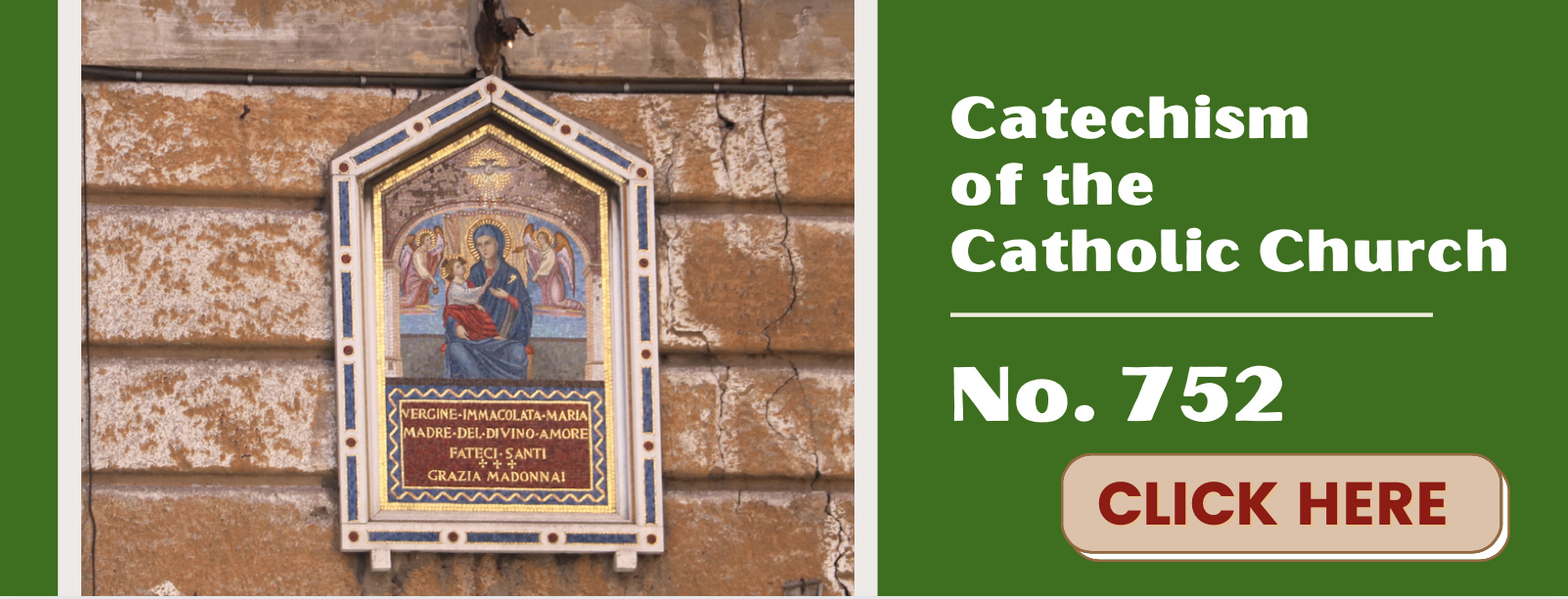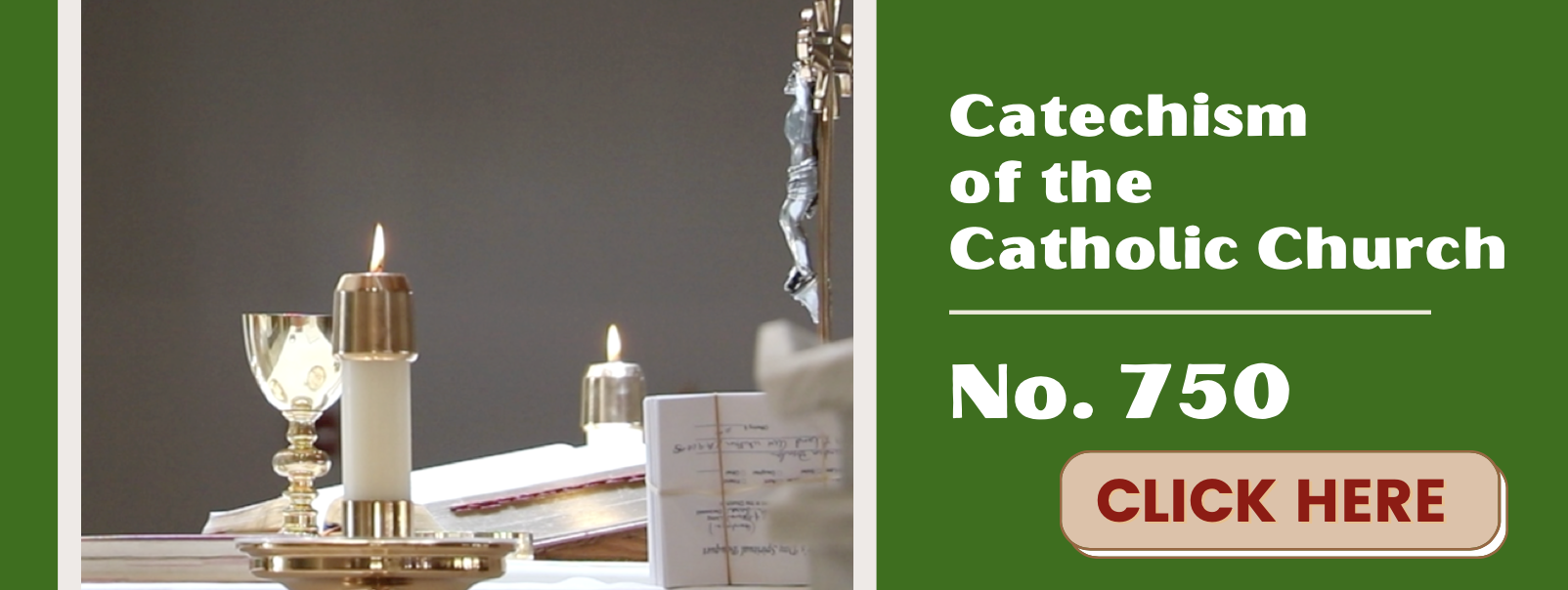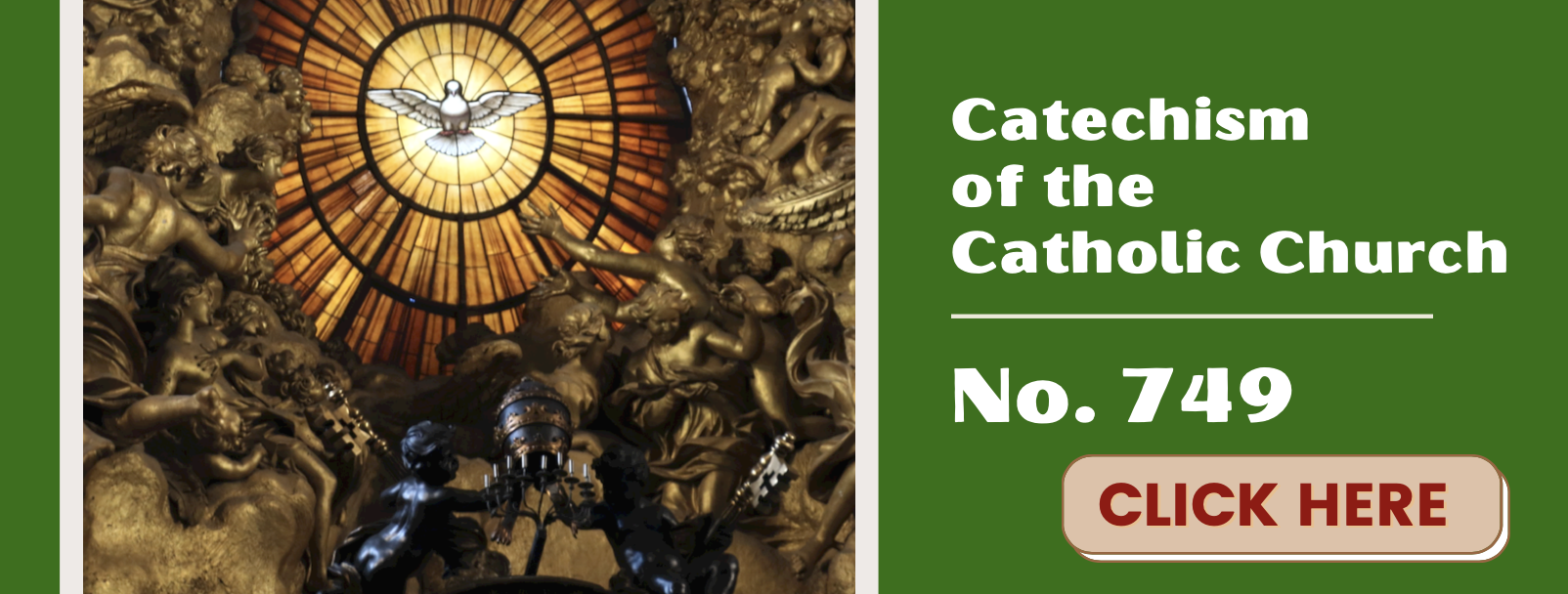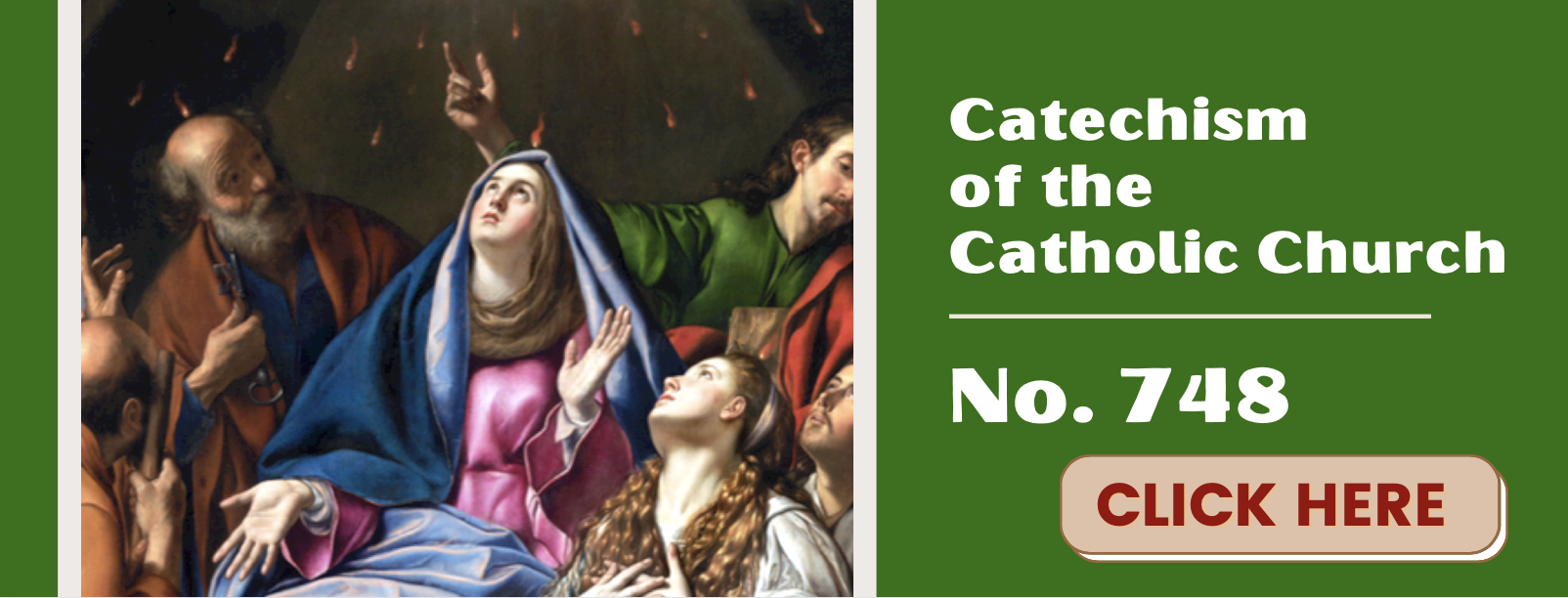Solemnity of Most Sacred Heart of Jesus



“For greater things you were born.” (Ven. Mother Luisita)
FRIDAY, June 24th Lk: 15: 3-7 SOLEMNITY OF THE MOST SACRED HEART OF JESUS Alleluia Verse: “I am the good shepherd, says the Lord; I know my sheep, and mine know me.”
Part I: Commentary on the Sacred Heart of Jesus
Part II: Litany of the Sacred Heart of Jesus
SACRED HEART OF JESUS, BURNING FURNACE OF CHARITY by Fr. Ed Broom, OMV
“Come to me, all you who are weary and burdened, and I will give you rest. Take my yoke upon you and learn from me, for I am meek and humble of heart; and you will find rest for yourselves. For my yoke is easy, and my burden light.” (Mt 26:26-38)
May is the month of Mary; July is the month of the Precious Blood of Jesus; October is the month of the Most Holy Rosary; November, traditionally, we pray for the dead. Finally, our focal point of this essay, is who we honor in the most special way in the month of June, and that is The Most Sacred Heart of Jesus.
We will encourage our readers to cultivate a deeper devotion to the most Sacred of Jesus by offering ten concrete suggestions. The clearest and most tangible symbol of God’s love for us is the most Sacred Heart of Jesus, the Burning Furnace of Charity. Draw close with great confidence and allow His Sacred Heart burning with love for you to set your heart on fire with love for Him and for the salvation of the whole world!
1. BIBLE RESOURCES. First and foremost, we should be keenly aware of the many passages where we can encounter the Sacred Heart of Jesus in the Bible, the Word of God. A few passages that can encourage your meditation:
a) Lk 1: 26-38. The most Sacred Heart of Jesus was being formed in the womb of the Blessed Virgin Mary during the course of her pregnancy, which lasted about nine months. By honoring the most pure womb of Mary we are indirectly honoring the Sacred Heart of Jesus and promoting respect for human life from conception until natural death.
b) Mt 11: 28-30. Jesus Himself describes His own Heart with two words: meek and humble. Let us often pray this short prayer to the Sacred Heart of Jesus: “Jesus meek and humble of Heart make my heart like unto thine.”
c) Mt 26: 26-28. THE LAST SUPPER. It was at the Last Supper that Jesus instituted the most Holy Eucharist which is the Body, Blood, Soul and Divinity of Jesus Christ. Of course, the noblest organ in the human person is the heart. Therefore, when we receive Holy Communion, we also receive the most Sacred Heart of Jesus. In a real sense, we can assert that every time we receive Holy Communion we receive a HEART TRANSPLANT!!!
d) Jn 19: 34. THE PIERCING OF THE SACRED HEART. After Jesus died, breathing forth His spirit into the hands of the eternal Father, the soldier with the lance, thrust the sword which pierced the side and Heart of Jesus, the Savior. From His open side and open Heart came gushing forth both blood and water. The waters of Baptism and Confession—forgiveness for our sins. The blood of the Most Holy Eucharist!
Utilize the above four Gospel passages pointing to the most Sacred Heart of Jesus for your meditation and contemplation. Dig deep into the treasures of Sacred Scripture in which we can encounter the Sacred Heart of Jesus. Read each passage, savor each passage, how does each passage speak to you?
2. IMAGE AND ENTHRONEMENT. A practice most pleasing to God is purchasing an attractive image of the most Sacred Heart of Jesus and enthroning this image in a prominent place in your home. By doing this you are stating publicly that the King of Kings and Lord of Lords, the Lord Jesus is the Heart and center of your home and family.
3. FORMAL ENTHRONEMENT. Invite a priest into your home with the Book of Blessings in which he can formally bless your home by enthroning the image of the most Sacred Heart of Jesus. The ritual consists of a Biblical passage, prayers, the use of holy water and the formal enthronement prayer. Enormous blessings flow from honoring the most Sacred Heart of Jesus, especially by means of a formal enthronement.
4. THE LITANY OF THE MOST SACRED HEART OF JESUS. Get in the habit of praying the Litany of the most Sacred Heart of Jesus. The mystical, Biblical, and poetic beauty of this Litany indeed is most inspiring and uplifting to our spiritual life. Perhaps pray it every Friday, the day we honor the Passion and Death of Our Lord and Savior.
5. VISIT THE BLESSED SACRAMENT AND ADORE. When you go to visit the Blessed Sacrament in the Church—exposed or in the Tabernacle—then you are truly visiting the most Sacred Heart of Jesus. Saint Pope John Paul II asserted that the Tabernacle is indeed the living Heartbeat of the Catholic Church. The more people visiting the Blessed Sacrament—the most Sacred Heart of Jesus—the healthier that Parish is!
6. HOLY COMMUNION: THE MOST SACRED HEART OF JESUS. As mentioned earlier, Holy Communion is the total Christ. Therefore, we receive in Holy Communion the most Sacred Heart of Jesus. Receive Jesus often, but never in a routine or mechanical fashion, rather with burning love and devotion!
7. JUNE: THE MONTH OF THE MOST SACRED HEART OF JESUS. We should honor, praise, and worship the most Sacred Heart of Jesus always. However, the month of June is the month most specifically dedicated to honoring the Sacred Heart of Jesus. Sacred Heart of Jesus, I place all my trust in you!
8. SOLEMNITY OF THE MOST SACRED HEART OF JESUS. Within the context of the month of June the Church celebrates the Solemnity of the most Sacred Heart of Jesus. This sublime and glorious Solemnity is celebrated on the Friday after the Sunday in which Corpus Christi is celebrated. On this day, in Holy Mass, we thank God for His infinite love that He has given to us in the Person of Jesus, but most especially in His Most Sacred Heart. As we contemplate the open Sacred Heart of Jesus pierced with the lance on Good Friday, we come to a keen awareness of how much Jesus really loves each and every one of us, having died for us and allowing His Sacred Heart to be pierced for us.
9. IMITATE THE MOST SACRED HEART OF JESUS. Knowledge generates love, love generates imitation, and imitation eventually generates transformation. Saint Paul could assert with utmost sincerity: “It is no longer I who live, but Christ who lives in me.” (Gal 2:20) The virtues manifested in the Sacred Heart of Jesus are many: humility, compassion, patience, courage, purity, obedience, penance, meekness, and most especially that of charity—supernatural love. By striving to imitate these virtues, you will most surely be on the highway to holiness and the highway to heaven.
10. SACRED HEART OF JESUS AND THE IMMACULATE HEART OF MARY. It would be incomplete if we did not encourage all of those growing in love for the most Sacred Heart of Jesus to cultivate devotion to the Immaculate Heart of Mary. As stated at the start of this essay, the most Sacred Heart of Jesus was formed in the womb of the Blessed Virgin Mary for nine months. For this reason, why not enthrone the most Sacred Heart of Jesus in union with enthronement of the Immaculate Heart of Mary; they are indeed inseparable!
In conclusion, as we struggle in our daily pilgrimage towards heaven in this valley of tears, in this spiritual war-zone, striving to carry our cross and burdens patiently, let us seek refuge frequently in the Immaculate Heart of Mary and in the Sacred Heart of Jesus—the two most safe refuges! Trustfully heed the words that issued from the most Sacred Heart of Jesus: “Come to me, all you who are weary and burdened, and I will give you rest. Take my yoke upon you and learn from me, for I am meek and humble of heart; and you will find rest for yourselves. For my yoke is easy, and my burden light.” (Mt 26: 26-38) If we seek refuge in His Sacred Heart in life, then we will be able to rest on His Sacred Heart in heaven for all eternity!
LITANY OF THE SACRED HEART OF JESUS
In 1899 Pope Leo XIII approved this Litany of the Sacred Heart of Jesus for public use. A total of 33 invocations, one for each year of life of our Lord Jesus Christ.
Lord, have mercy on us. Christ, have mercy on us. Lord, have mercy on us.
Christ, hear us. Christ graciously hear us.
R. Have mercy on us.
God the Father of Heaven, have mercy on us.
God the Son, Redeemer of the world, have mercy on us.
God the Holy Spirit, have mercy on us.
Holy Trinity, One God, have mercy on us.
Heart of Jesus, Son of the Eternal Father, have mercy on us.
Heart of Jesus, formed in the womb of the Virgin Mother by the Holy Spirit, have mercy on us.
Heart of Jesus, united substantially with the word of God, have mercy on us.
Heart of Jesus, of infinite majesty, have mercy on us.
Heart of Jesus, holy temple of God, have mercy on us.
Heart of Jesus, tabernacle of the Most High, have mercy on us.
Heart of Jesus, house of God and gate of heaven, have mercy on us.
Heart of Jesus, glowing furnace of charity, have mercy on us.
Heart of Jesus, vessel of justice and love, have mercy on us.
Heart of Jesus, full of goodness and love, have mercy on us.
Heart of Jesus, abyss of all virtues, have mercy on us.
Heart of Jesus, most worthy of all praise, have mercy on us.
Heart of Jesus, King and center of all hearts, have mercy on us.
Heart of Jesus, in whom are all the treasures of wisdom and knowledge, have mercy on us.
Heart of Jesus, in whom dwells all the fullness of the Divinity, have mercy on us.
Heart of Jesus, in whom the Father is well pleased, have mercy on us.
Heart of Jesus, whom we have all received, have mercy on us.
Heart of Jesus, desire of the everlasting hills, have mercy on us.
Heart of Jesus, patient and rich in mercy, have mercy on us.
Heart of Jesus, rich to all who invoke Thee, have mercy on us.
Heart of Jesus, fount of life and holiness, have mercy on us.
Heart of Jesus, propitiation for our sins, have mercy on us.
Heart of Jesus, saturated with revilings, have mercy on us.
Heart of Jesus, crushed for our iniquities, have mercy on us.
Heart of Jesus, made obedient unto death, have mercy on us.
Heart of Jesus, pierced with a lance, have mercy on us.
Heart of Jesus, source of all consolation, have mercy on us.
Heart of Jesus, our life and resurrection, have mercy on us.
Heart of Jesus, our peace and reconciliation, have mercy on us.
Heart of Jesus, victim for our sins, have mercy on us.
Heart of Jesus, salvation of those who hope in Thee, have mercy on us.
Heart of Jesus, hope of those who die in Thee, have mercy on us.
Heart of Jesus, delight of all saints, have mercy on us.
Lamb of God, who takes away the sins of the world, Spare us, O Lord.
Lamb of God, who takes away the sins of the world, Christ graciously spare us.
Lamb of God who takes away the sins of the world, Have mercy on us.
V. Jesus, meek and humble of Heart. R. Make our hearts like unto Thine.
Let us pray: Almighty and everlasting God, look upon the Heart of Thy well-beloved Son and upon the acts of praise and satisfaction which He renders unto Thee in the name of sinners; and do Thou, in Thy great goodness, grant pardon to them who seek Thy mercy, in the name of the same Thy Son, Jesus Christ, who lives and reigns with You, world without end. Amen.







